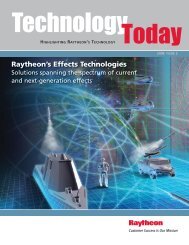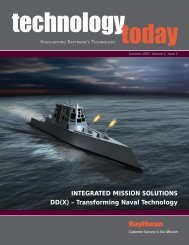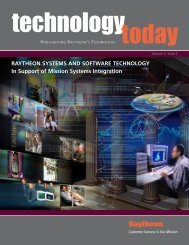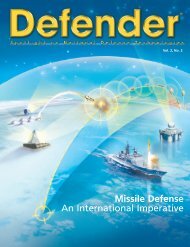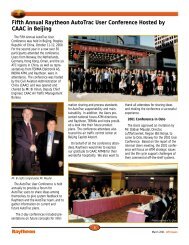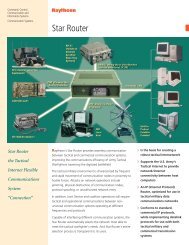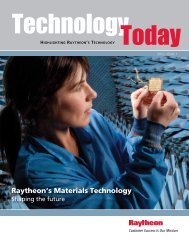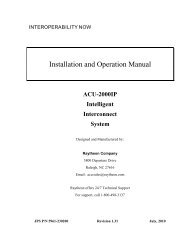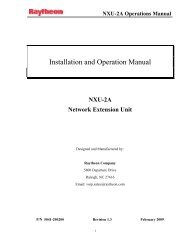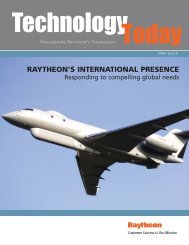Raytheon Company Public Key Infrastructure (PKI) Certificate Policy
Raytheon Company Public Key Infrastructure (PKI) Certificate Policy
Raytheon Company Public Key Infrastructure (PKI) Certificate Policy
You also want an ePaper? Increase the reach of your titles
YUMPU automatically turns print PDFs into web optimized ePapers that Google loves.
Hashing:<br />
Cryptographic<br />
Function<br />
Hashing Algorithm for<br />
<strong>Certificate</strong>s<br />
Hashing Algorithm for<br />
CRLs<br />
Hashing Algorithm for<br />
Pre-signed OCSP<br />
Responses<br />
Hashing Algorithm for<br />
Other (i.e., not presigned)<br />
OCSP<br />
Responses<br />
Issued on or<br />
before 12/31/2010<br />
Issued after<br />
12/31/2010 but<br />
before 12/31/2030<br />
SHA-1 SHA-224 or SHA-<br />
256<br />
Issued after<br />
12/31/2030<br />
SHA-256<br />
SHA-1 SHA-1 7 SHA-256<br />
SHA-1 SHA-1 8 SHA-256<br />
SHA-1 SHA-224 or SHA-<br />
256<br />
SHA-256<br />
CSAs shall use the same signature algorithms, key sizes, and hash algorithms as used by the<br />
CA to sign the certificate in question. However CRLs and pre-signed OCSP responses can be<br />
signed using SHA-1 at all assurance levels.<br />
Using compensating controls on the SHA-1 hashing algorithm increases the effective bit<br />
strength to 80 bits and allows it to be effectively used through the end of 2013. The<br />
compensating controls employed introduce validity entropy (randomness) into the unused and<br />
least significant bits of the validity date fields.<br />
As an exception to all of the other assertions in this section, CAs not asserting “id-raytheon-<br />
SHA2-…..” series certificate policy OID(s) may continue to use SHA-1 for issuing end entity<br />
certificates after 12/31/2010. OCSP Responders that only provide “certificate revocation status”<br />
of certificates that do not possess “id-raytheon-SHA2-…..” certificate policy OIDs, may use<br />
SHA-1 for all OCSP response types, not just for pre-signed.<br />
After 12/31/2010, CAs operatingi 9 at medium and high assurance shall only act on certificate<br />
requests to sign using the SHA-1 hashing algorithm if all of the following conditions are met:<br />
1. The certificate request is generated/created by a trusted entity (e.g., RA, CA, or CSA);<br />
and<br />
2. The certificate request is securely submitted by a trusted entity.<br />
6.1.6 <strong>Public</strong> <strong>Key</strong> Parameters Generation and Quality Checking<br />
RSA keys shall be generated in accordance with ANSI X9.31. Prime numbers for RSA shall be<br />
generated or tested for primality in accordance with ANSI X9.80.<br />
ECDSA and ECDH keys shall be generated in accordance with FIPS 186-2. Curves from FIPS<br />
186-3 shall be used.<br />
7<br />
<strong>Raytheon</strong> may decide to transition to stronger hash algorithm earlier than 12/31/2030.<br />
8<br />
<strong>Raytheon</strong> may decide to transition to stronger hash algorithm earlier than 12/31/2030.<br />
9<br />
A CA is considered operating at an assurance level, if it has been issued a certificate for that assurance<br />
level or is issuing certificates at that assurance level.<br />
61 7/25/2011



